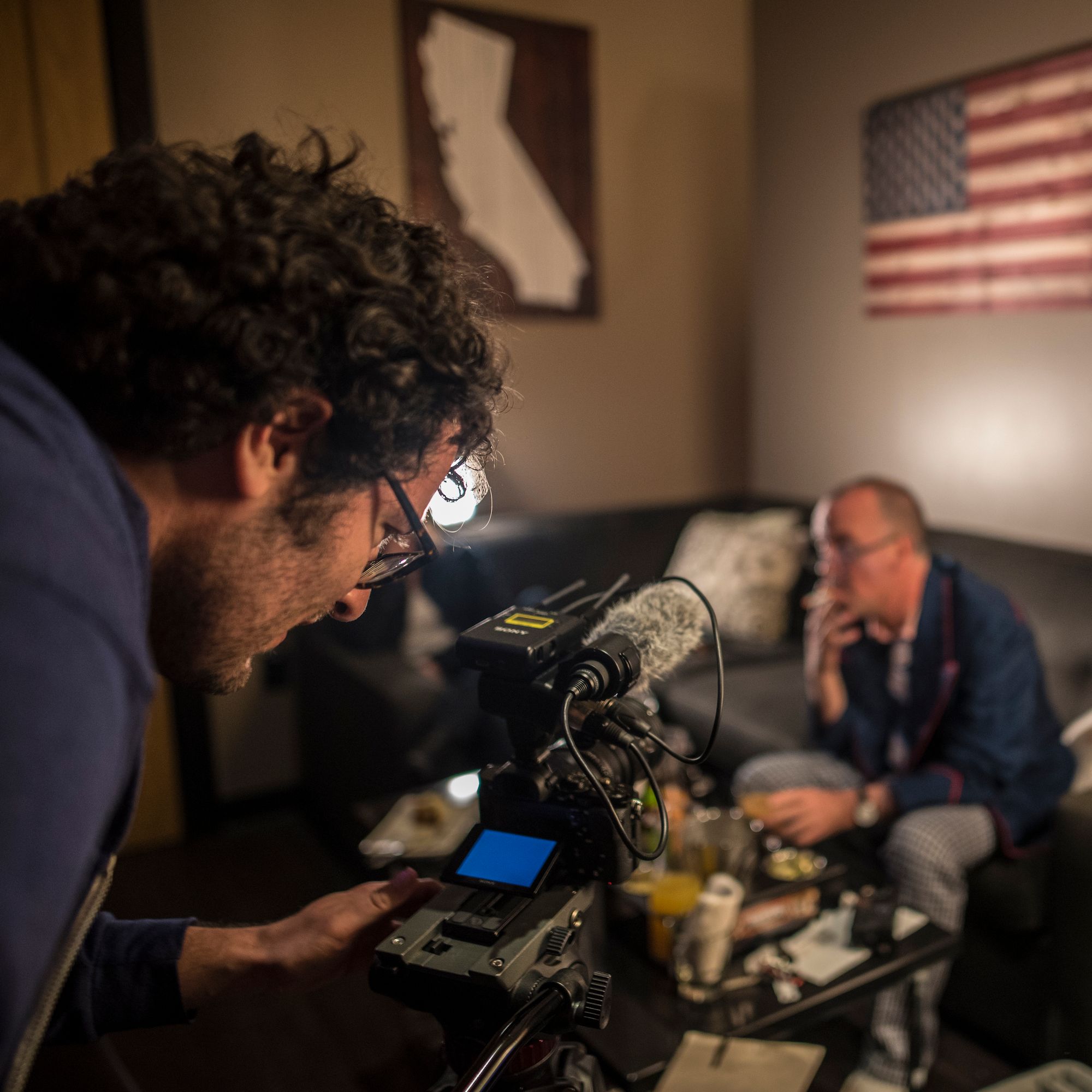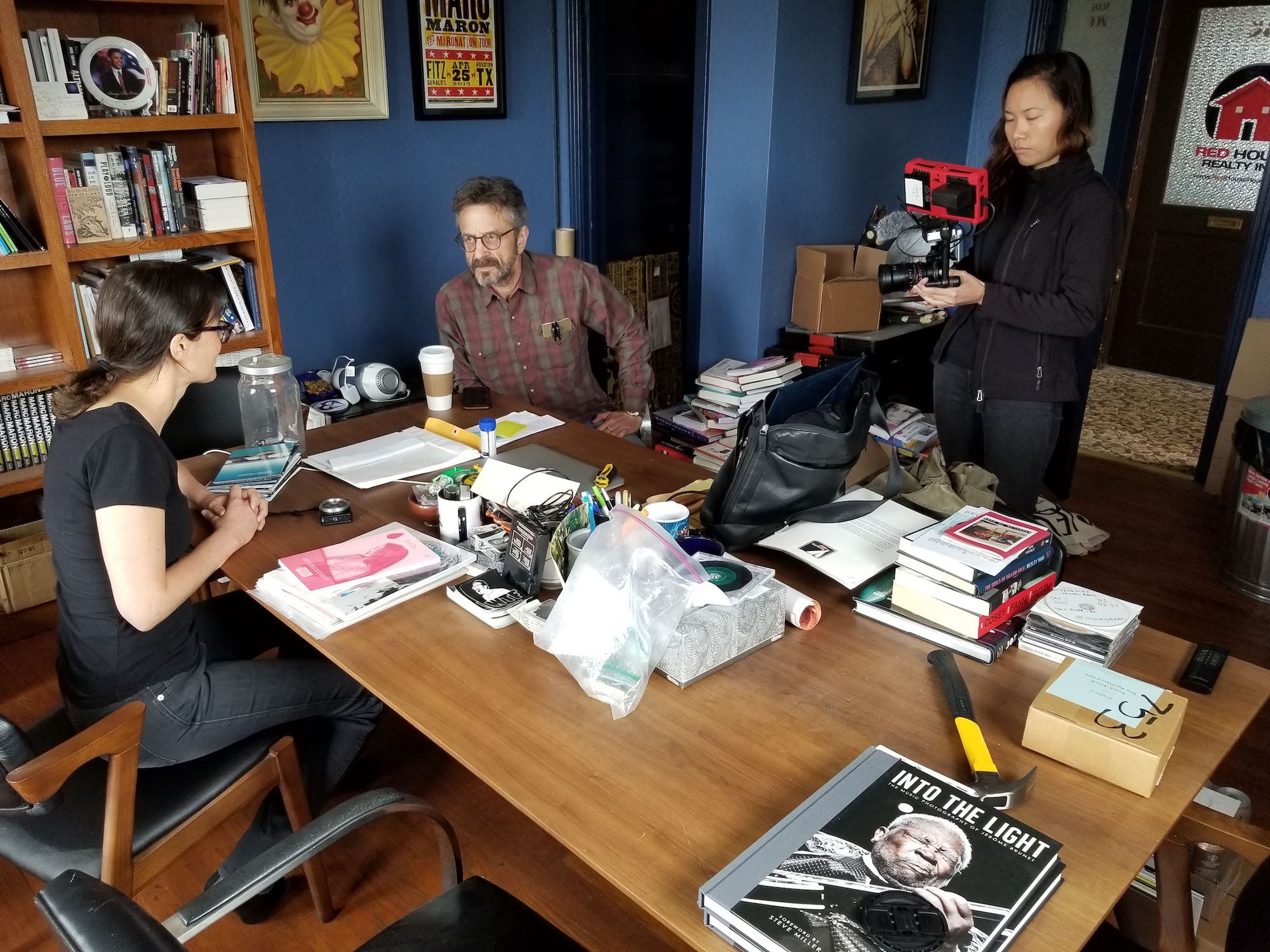
Knowing When It's Too Soon
When tragedy strikes, how do we respond? Even the question can be divisive. The wrong response can be, at best, insensitive and, at worst, gut-wrenching.
However, the response can also be an opportunity. Culture often looks to artists and storytellers to make sense of what feels senseless. The stories we tell in these moments help us make meaning of the pain we feel, the events that haunt us, and the losses we experience.
Knowing the right moment in time for any story is a challenge. Knowing the right moment for comedy shortly after a tragedy can be even more elusive. Crushing emotions can complicate even our most clear awareness.
Nick Scown felt the weight of this timing just after the tragic events on September 11, 2001.
“I had a trip scheduled to go to New York to look at film schools, and that trip just so happened to be at the end of September in 2001. I still went and ended up not actually going to visit either of the schools that I was planning to, because I ended up just hanging out with my friends and talking with them and being there for them, because they were all in shock and struggling with what they'd been through, being in the city. That left an impression on me. When I had to go back home, I took a train back to the airport. I hadn't realized that the train stations were stopped at Chambers Street, which was where the World Trade Center was. You had to get out and walk through that area to get to the other side, which was a very surreal experience—being on a normal New York street and then slowly walking into an apocalypse of dust everywhere with people wearing masks and the military and police running around. That experience stuck with me,” Scown said.
When he got home, he tried to process what he had just seen and felt, but had trouble. In this dark moment, a fortuitous light crossed his path from an unexpected source—The Onion.
“It made me laugh and cry. An emotional dam broke inside me because of that issue. I had a cathartic release, thanks to comedy. And I thought, maybe there's something here—the idea that tragedy plus time equals comedy,” Scown said.
This kernel would remain with him for more than a decade. “It sat on the back shelf, and I fully expected someone else would eventually make it because it's a good idea, but I didn’t know if I was the person to do it.”
However, an unforeseen siren again called out for him, this time on a plane. “I was reading this book called The 4-Hour Workweek, which I wasn't even planning to read. I had actually purchased it for a family member who was struggling with their career at the time,” Scown said.
The author, Timothy Ferris, laid out a challenge that Scown just couldn’t ignore. Ferris suggested that if there was an idea or something that you had wanted to do for a long time, but couldn’t personally do yourself, there might be a solution.
“The book asked if there were five people that you could email right now who could help you? And on that plane, I wrote down five names,” Scown said.
One of those names was Julie Seabaugh, a comedy journalist who he had met at a friend's wedding.

After a few emails back and forth, Scown and Seabaugh had lunch, and before the bill arrived, she was on board. Synchronistically, Seabaugh had a similar experience with the 9/11 issue of The Onion. While Scown had a background in film, neither he nor Seabaugh had ever made a documentary. Determined not to let this stop them, they forged ahead. However, it would be years before the project would see screens. When asked what he’s learned about timing and creative projects, Scown leans back in his chair and stares into the void.
“Maybe it's a good thing for any creative person to experience, whether they're a writer or a filmmaker or whoever. The idea that keeps coming back again and again. I think Stephen King or somebody of his stature once said that you always fall in love with a new idea. You hate the one that you're working on and begin to believe it’s terrible, but this new idea, this idea is perfect. It’s the fallacy of the new,” he said.
Scown and Seabaugh continued to pursue their idea, year after year. One year turned to two and two to four. Eventually a collection of legendary comedians had come on board and agreed to be filmed for the project. Comedic voices ranging from Matthew Broderick and Janeane Garofalo to Ahmed Ahmed and Cederic the Entertainer spoke to their experiences after 9/11.
“Obviously one of the big challenges is that we wanted to make sure that this wasn’t just a series of 9/11 jokes, that it does have a story and that it has these people that you relate to, that you form a bond with and you care about, develop their journeys and their stories, and hopefully it has this arc to it that connects with you emotionally at the end. That was always going to be the hardest thing,” Scown said.
Seeing that the 20th anniversary of the events on 9/11 would be approaching, they gained new momentum to complete the project in 2019.
Of course, no creator saw COVID coming or was prepared for the disruption it would cause. However, what at first seemed like an unfortunate delay became a new opportunity to speak to tragedy and devastation. Seeing thoughtful reflections about how comedy helped us journey through a previous disaster became very relevant to the moment the film would now be released in.
“The comedians who lived in New York at the time, who saw 9/11 happen and were affected by it, had PTSD and depression issues. And despite that, they all found a way to dig out of that hole and to talk about what they were feeling and what their audiences were feeling,” Scown said. “It's a reminder that you can heal from these things. But I also think there's this fallacy of, ‘Oh, we'll just go back to normal.’ And I don't think that's true. Part of what the film shows is that things did not go back to normal after the attack. Things changed radically, and we were in a new world. But even though we were in a new world, we still managed to help each other and to make jokes and to point out hypocrisies and the things we don't agree with. We might not go back to normal, but we will move forward.”
Scown is also quick to point out that the tragedy is not what is funny.
“Where the humor comes out of is not from the tragedy itself, but how we react to it. It's probably sad to say, but this documentary might have relevance for a very long time because there's always going to be a tragedy to deal with. There's always going to be some kind of challenge or roadblocks that we're going to face as a society. And hopefully, if people watch this film, they realize that comedians are trying to help in a lot of ways. They're just trying to help us get through this and process what's happening,” he said.
Having gone through the experience, Scown does have earned advice for creators that want to tackle tough issues.
“If you're dealing with a difficult subject, be aware of the challenge with it and do not try and shy away from it. We would get passes from people that we would have loved to have had in the film, but they would say, ‘I appreciate what you're trying to do. That was the worst time in my entire life, and I have no interest in discussing it.’ And so we said, ‘Totally get it.’ When we had to, we would go to archival interview footage of certain people because they didn't want to sit down with us for whatever reason. We never said, ‘Oh, well, I guess we're just not going to include that story.’ We would say, ‘OK, how can we make this work? Let's find a way to make it work.’ That became our philosophy. That’s how the film eventually got made and this story eventually got told.”
Too Soon: Comedy After 9/11 screens at the Dances With Film Festival at the TCL Chinese Theaters in Hollywood on September 11 at 2:30 PM PST and is available on ViceTV.
*Feature Photo: Nick Fituri Scown and Doug Stanhope (Courtesy of Julie Seabaugh)

